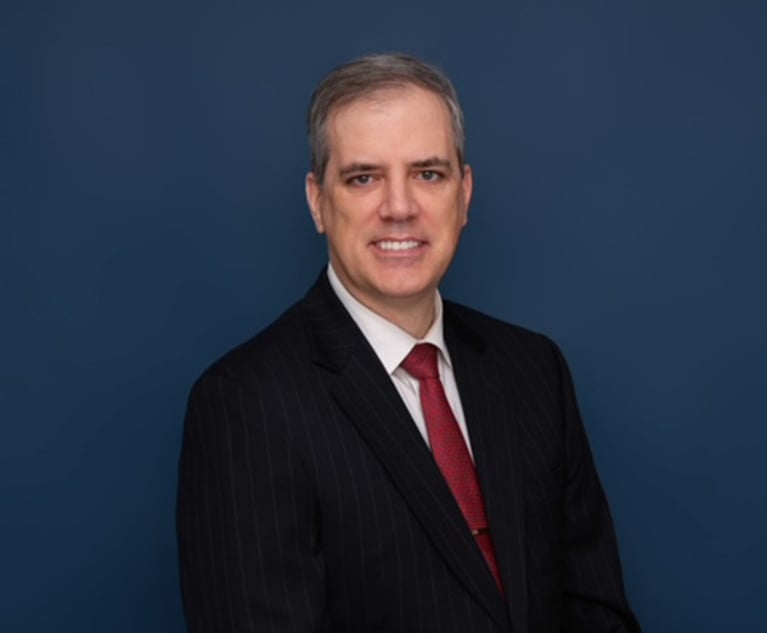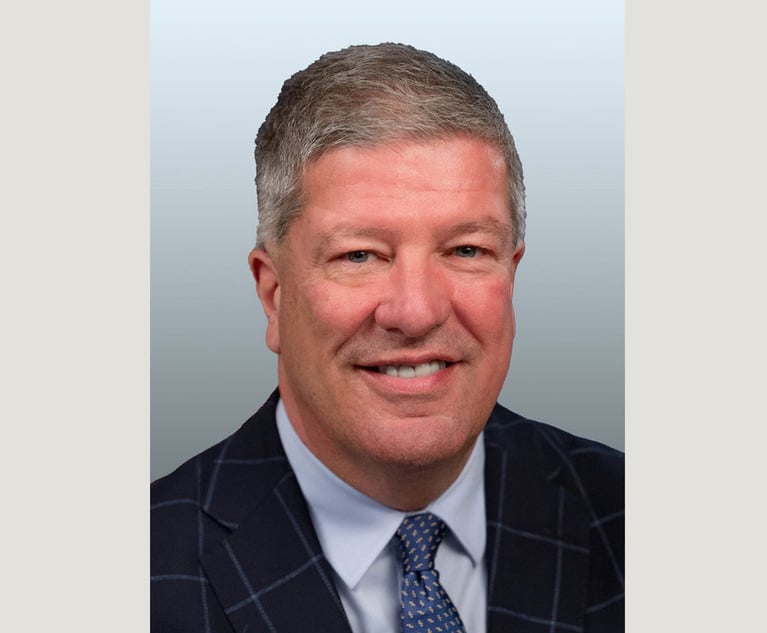Employers Have to Pay Workers for Short Breaks, Third Circuit Rules
Employers are obligated to pay their employees for breaks of 20 minutes or less under the Fair Labor Standards Act, the U.S. Court of Appeals for the Third Circuit ruled in a precedential decision Friday.
October 13, 2017 at 04:18 PM
3 minute read

Employers are obligated to pay their employees for breaks of 20 minutes or less under the Fair Labor Standards Act, the U.S. Court of Appeals for the Third Circuit ruled in a precedential decision Friday.
The court affirmed a district judge's ruling granting the secretary of the U.S. Department of Labor's motion for partial summary judgment on its claims that Progressive Business Publications failed to pay a minimum wage.
According to Third Circuit Judge Theodore McKee's opinion, Progressive's hourly employees were only paid so long as they were logged into their computers. While the company had eliminated paid 15-minute breaks, it allowed its employees to log off of their computers at any time, which Progressive calls “flexible time.”
Progressive stopped paying employees after they were logged off for more than 90 seconds. Employees were required to log off to get coffee and use the bathroom. The company argued on appeal that the time spent logged off does not constitute “work” under the FLSA.
“The policy that Progressive refers to as 'flexible time' forces employees to choose between such basic necessities as going to the bathroom or getting paid unless the employee can sprint from computer to bathroom, relieve him or herself while there, and then sprint back to his or her computer in less than 90 seconds,” McKee said.
He continued, “If the employee can somehow manage to do that, he or she will be paid for the intervening period. If the employee requires more than 90 seconds to get to the bathroom and back, the employee will not be paid for the period logged off of, and away from, the employee's computer. That result is absolutely contrary to the FLSA.”
McKee said that employers don't need to have a break policy in place, but the court refused to hold that the FLSA allowed employers to disguise one as something else.
Progressive further argued that if employees would be able to take advantage of a bright-line rule allowing them to be paid for short breaks, they could take as many as they please as long as they are under 20 minutes.
“We recognize this is a theoretical possibility … but not a realistic one,” McKee said.
Progressive is represented by Alfred W. Putnam Jr. of Drinker Biddle & Reath in Philadelphia, who said his client “believes it's not right and will be considering the options available.”
Federal attorney Rachel Goldberg of the Department of Labor, Division of Fair Labor Standards represented the government. The DOL did not respond to a request seeking comment.
P.J. D'Annunzio can be contacted at 215-557-2315 or [email protected]. Follow him on Twitter @PJDannunzioTLI.
This content has been archived. It is available through our partners, LexisNexis® and Bloomberg Law.
To view this content, please continue to their sites.
Not a Lexis Subscriber?
Subscribe Now
Not a Bloomberg Law Subscriber?
Subscribe Now
NOT FOR REPRINT
© 2025 ALM Global, LLC, All Rights Reserved. Request academic re-use from www.copyright.com. All other uses, submit a request to [email protected]. For more information visit Asset & Logo Licensing.
You Might Like
View All


Stevens & Lee Hires Ex-Middle District of Pennsylvania U.S. Attorney as White-Collar Co-Chair
3 minute read
Judge Tanks Prevailing Pittsburgh Attorneys' $2.45M Fee Request to $250K
5 minute readTrending Stories
Who Got The Work
J. Brugh Lower of Gibbons has entered an appearance for industrial equipment supplier Devco Corporation in a pending trademark infringement lawsuit. The suit, accusing the defendant of selling knock-off Graco products, was filed Dec. 18 in New Jersey District Court by Rivkin Radler on behalf of Graco Inc. and Graco Minnesota. The case, assigned to U.S. District Judge Zahid N. Quraishi, is 3:24-cv-11294, Graco Inc. et al v. Devco Corporation.
Who Got The Work
Rebecca Maller-Stein and Kent A. Yalowitz of Arnold & Porter Kaye Scholer have entered their appearances for Hanaco Venture Capital and its executives, Lior Prosor and David Frankel, in a pending securities lawsuit. The action, filed on Dec. 24 in New York Southern District Court by Zell, Aron & Co. on behalf of Goldeneye Advisors, accuses the defendants of negligently and fraudulently managing the plaintiff's $1 million investment. The case, assigned to U.S. District Judge Vernon S. Broderick, is 1:24-cv-09918, Goldeneye Advisors, LLC v. Hanaco Venture Capital, Ltd. et al.
Who Got The Work
Attorneys from A&O Shearman has stepped in as defense counsel for Toronto-Dominion Bank and other defendants in a pending securities class action. The suit, filed Dec. 11 in New York Southern District Court by Bleichmar Fonti & Auld, accuses the defendants of concealing the bank's 'pervasive' deficiencies in regards to its compliance with the Bank Secrecy Act and the quality of its anti-money laundering controls. The case, assigned to U.S. District Judge Arun Subramanian, is 1:24-cv-09445, Gonzalez v. The Toronto-Dominion Bank et al.
Who Got The Work
Crown Castle International, a Pennsylvania company providing shared communications infrastructure, has turned to Luke D. Wolf of Gordon Rees Scully Mansukhani to fend off a pending breach-of-contract lawsuit. The court action, filed Nov. 25 in Michigan Eastern District Court by Hooper Hathaway PC on behalf of The Town Residences LLC, accuses Crown Castle of failing to transfer approximately $30,000 in utility payments from T-Mobile in breach of a roof-top lease and assignment agreement. The case, assigned to U.S. District Judge Susan K. Declercq, is 2:24-cv-13131, The Town Residences LLC v. T-Mobile US, Inc. et al.
Who Got The Work
Wilfred P. Coronato and Daniel M. Schwartz of McCarter & English have stepped in as defense counsel to Electrolux Home Products Inc. in a pending product liability lawsuit. The court action, filed Nov. 26 in New York Eastern District Court by Poulos Lopiccolo PC and Nagel Rice LLP on behalf of David Stern, alleges that the defendant's refrigerators’ drawers and shelving repeatedly break and fall apart within months after purchase. The case, assigned to U.S. District Judge Joan M. Azrack, is 2:24-cv-08204, Stern v. Electrolux Home Products, Inc.
Featured Firms
Law Offices of Gary Martin Hays & Associates, P.C.
(470) 294-1674
Law Offices of Mark E. Salomone
(857) 444-6468
Smith & Hassler
(713) 739-1250





